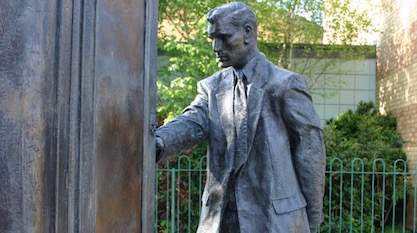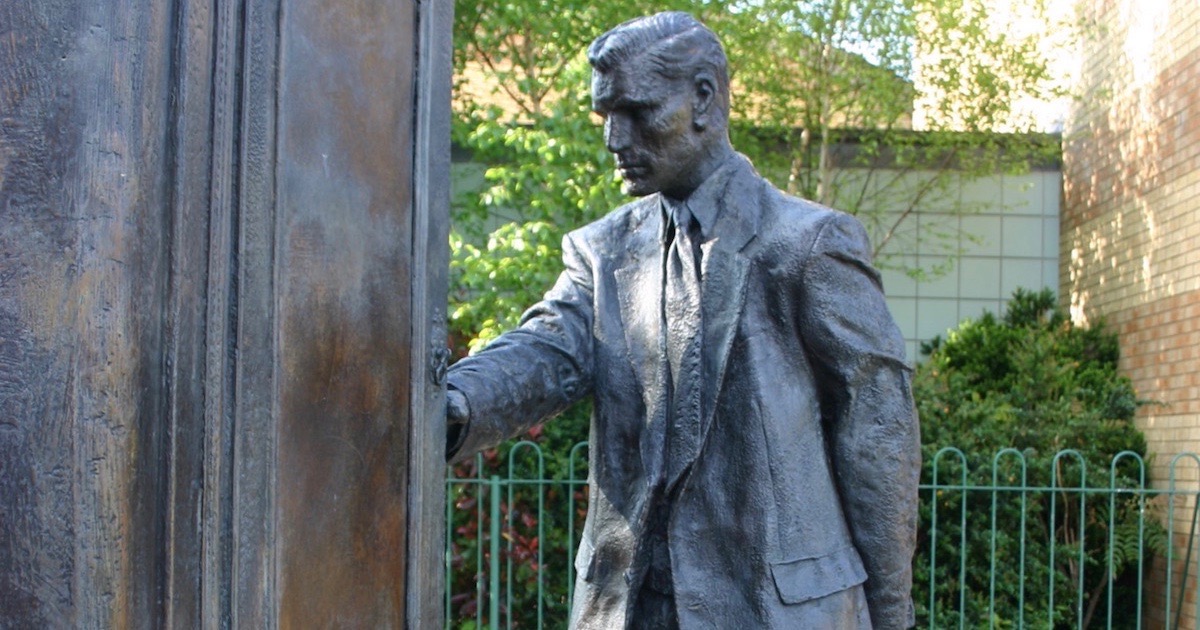 Evolution
Evolution
On Intelligent Design, Do Your Own Homework. Make Up Your Own Mind.


Editor’s note: Professor Behe’s new book, Darwin Devolves, will be published next month by HarperOne.
What we have here is a teachable moment.
At National Review, Kevin D. Williamson (many of whose writings I otherwise admire) has over the years aimed a number of one-line potshots in the direction of intelligent design. He did it again just a week or so ago, offhandedly sneering at ID as “daft rube-bait” in an article about something completely different. This time, however, David Klinghoffer (who was literary editor at National Review in the 1990s) pushed back.
From reading his comments over time, David was “pretty sure that Williamson has little or no idea how advocates of intelligent design make their case.” David then listed a number of conservative luminaries who were/are public skeptics of Darwinism, followed by some prominent scientists (plus me) who were/are, too.
Jumping on the Luminaries
Williamson ignored the scientists and jumped on the list of luminaries. Why, those people are just “a theologian, a political polemicist, a historian, a journalist‑novelist, an intellectual historian, and a literary critic — followed by a mathematician and a lawyer”! They can’t possibly contribute to “a technical debate within a specialized subdiscipline of biology.” No daft rube he, Williamson (a journalist with a bachelor’s degree in English) defers to the authority of the scientific mainstream’s Darwinism.
David wrote a great re-response, touching on several obvious points that Williamson strangely avoided, one of which is “whether laymen may venture a judgment in what Williamson calls “a technical debate.’” I think that topic — of who is allowed to have an opinion — could use a bit of elaboration.
“Is Criticism Possible?”
Interestingly, C.S. Lewis encountered an analogous objection to his literary criticism and explored its underlying logic in an essay in his 1961 book A Preface to Paradise Lost, entitled “Is criticism possible?”1 T.S. Eliot had sniffed that Lewis, a mere critic, couldn’t judge Eliot’s poetry. Only “the best contemporary practising poets” could do that. Lewis thought through the ramifications:
Let us consider what would follow if we took Mr. Eliot’s view seriously. The first result is that I, not being one of the best contemporary poets, cannot judge Mr. Eliot’s criticism at all. What then shall I do? Shall I go to the best contemporary poets, who can, and ask them whether Mr. Eliot is right? But in order to go to them I must first know who they are. And this, by hypothesis, I cannot find out; the same lack of poethood which renders my critical opinions on Milton worthless renders my opinions on Mr. Pound or Mr. Auden equally worthless. Shall I then go to Mr. Eliot and ask him to tell me who the best contemporary poets are? But this, again, will be useless. I personally may think Mr. Eliot a poet — in fact, I do — but then, as he has explained to me, my thoughts on such a point are worthless. … Poets become on this view an unrecognizable society (an Invisible Church), and their mutual criticism goes on within a closed circle which no outsider can possibly break into at any point. …
But even within the circle it is no better. Mr. Eliot is ready to accept the verdict of the best contemporary poets on his criticism. But how does he recognize them as poets? Clearly, because he is a poet himself; for if he is not, his opinion is worthless. At the basis of his whole critical edifice, then, lies the judgement “I am a poet.” But this is a critical judgement. It therefore follows that when Mr. Eliot asks himself, “Am I a poet?” he has to assume the answer “I am” before he can find the answer “I am”; for the answer, being a piece of criticism, is valuable only if he is a poet. He is thus compelled to beg the question before he can get started at all.
Nasty Logical Problems
Any argument of the form “Only professional Xs can judge X-ness” suffers from the nasty logical problems Lewis illuminates. But, as Lewis notes, the problems arise only if we are pigheaded about it:
Such are the results if we take the position in its full rigour. But of course if it is only meant that a good poet, other things being equal (which they often are not), is reasonably likely, in talking about the kinds of poetry he has himself written well and read with delight, to say something more worth hearing than another, then we need not deny it.
The application to controversies over Darwinism, although not exactly the same as for literary criticism, is pretty straightforward. Darwin’s theory invokes technical details, but it and modern extensions of it are, at bottom, simply chains of reasoning. Thus any rational person who does some technical homework — who informs himself of what Darwinian biologists and their critics have said — is perfectly able to come to his own conclusions. That’s especially true when the question of how the molecular systems of life arose elicits plain-English replies from quite prominent evolutionary biologists, such as “There are no detailed Darwinian accounts for the evolution of any fundamental biochemical or cellular system, only a variety of wishful speculations”2 and “We may forever be unable to envisage the first proto-pathways.”3
References
- Lewis, C.S., 1962. Is Criticism Possible? in: Johnson, J. W. (Ed.), Logic and Rhetoric. Macmillan, New York, pp. 186-189.
- Shapiro, J., In the details … what? National Review, pp. 62-65, 9/16/1996.
- Coyne, J. A., 1996. God in the details. Nature 383:227-228.
Photo: C.S. Lewis, statue, Belfast, Northern Ireland, by Genvessel [CC BY 2.0], via Wikimedia Commons.
